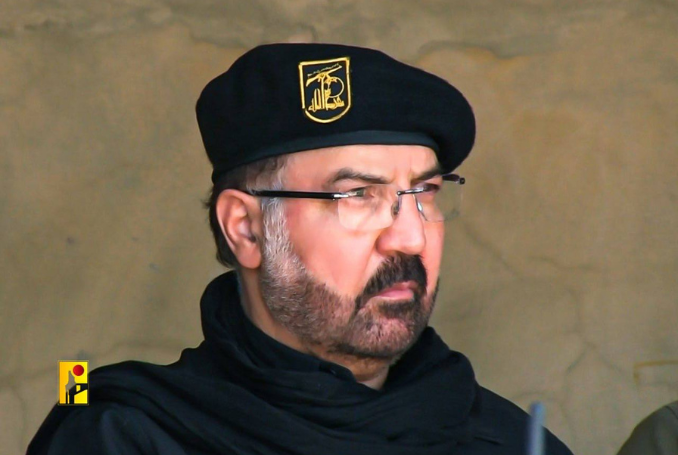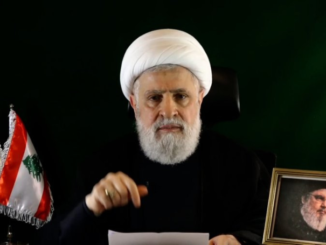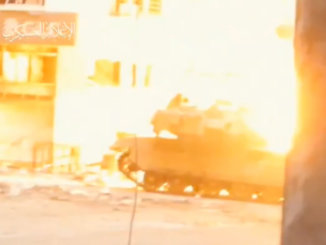
The Lebanese movement Hezbollah has confirmed that one of its senior officials, Fouad Shukr, was assassinated in an Israeli military strike on a residential building in the capital of Beirut on Tuesday.
The Israeli army announced on Tuesday that it had carried out an airstrike targeting a senior Hezbollah leader in a building located in Haret Hreik, a southern suburb of Beirut. The strike resulted in the deaths of several Lebanese civilians, including a woman and two children, and left others wounded.
According to a security source cited by Reuters, “the strike on the southern suburb of Beirut targeted a senior leader in Hezbollah, but his fate remains unknown.”
News outlets reported that the airstrike was aimed at Fouad Shukr, a high-ranking Hezbollah figure.
Hezbollah did not immediately confirm his death.
On Wednesday, however, the Lebanese news outlet Al-Manar officially announced Shukr’s death in the Israeli airstrike.
In a statement released on Wednesday, Hezbollah praised Shukr as “a symbol of steadfast commitment and determination to continue the jihad until the liberation of the land.”
The statement also indicated that the group’s leader, Sayyed Hassan Nasrallah, would address Shukr’s funeral procession on Thursday.
“Our political stance on this heinous aggression and great crime will be conveyed by the Secretary-General of Hezbollah, His Eminence Sayyed Hassan Nasrallah, during the funeral procession of the martyr leader tomorrow,” the statement read.
? Hezbullah officially mourn the dear and honorable most senior commander Mr. Fouad Shukr (Sayyed Mohsen)
? His Eminence Hujjat al-Islam Sayyed Hassan Nasrallah to speak tomorrow noon.
?Glory to the Martyr's pic.twitter.com/gmkydTChYE
— Resistance Monitor? (@Resistance151) July 31, 2024
Who was Fouad Shukr?
Fouad Shukr, also known by his alias Hajj Mohsen, hailed from the town of Nabi Sheet in the Bekaa Valley and was regarded as one of the founding members of the Islamic Resistance in Lebanon.
According to the Lebanese outlet Al-Mayadeen, Shukr began his activities in the Ouzai area of Beirut and quickly rose to prominence as a key figure in resisting the 1982 Israeli invasion.
He participated in notable battles, such as those in Khalde and at the Faculty of Sciences in Beirut, where he emerged as a significant commander and played a crucial role in establishing resistance groups.
Shukr was considered one of Sayyed Hassan Nasrallah’s closest advisors and had been pursued by the United States for his alleged involvement in the 1983 Beirut Barracks Bombings, which targeted US and French soldiers stationed in Lebanon during the Civil War.
LEBANESE MINISTRY OF HEALTH: Three civilians, a woman and two children, were killed in an Israeli raid on Tuesday evening on the southern suburbs of Beirut, according to an inconclusive toll reported by the Lebanese Ministry of Health.
The ministry indicated in a statement that… pic.twitter.com/qrDseyD15J
— The Palestine Chronicle (@PalestineChron) July 30, 2024
In 1992, Shukr expanded his influence by managing external affairs, including overseeing the Bosnia and Herzegovina portfolio, and mentoring young resistance fighters in Bosnia.
Upon returning to Lebanon, he continued his activities as a military unit commander until 1995, and played a pivotal role in founding Hezbollah’s naval and air forces.
In 2006, Shukr was responsible for the missile and naval forces, notably overseeing the attack on the Israeli Sa’ar warship.
He was later appointed as a central assistant by Hezbollah’s Secretary-General Sayyed Hassan Nasrallah and the party’s Shura Council.
(PC, Al-Mayadeen)








